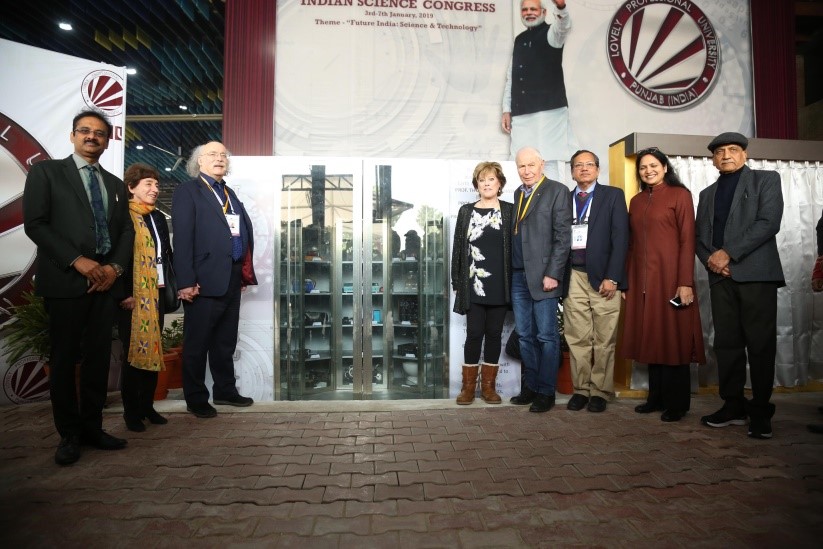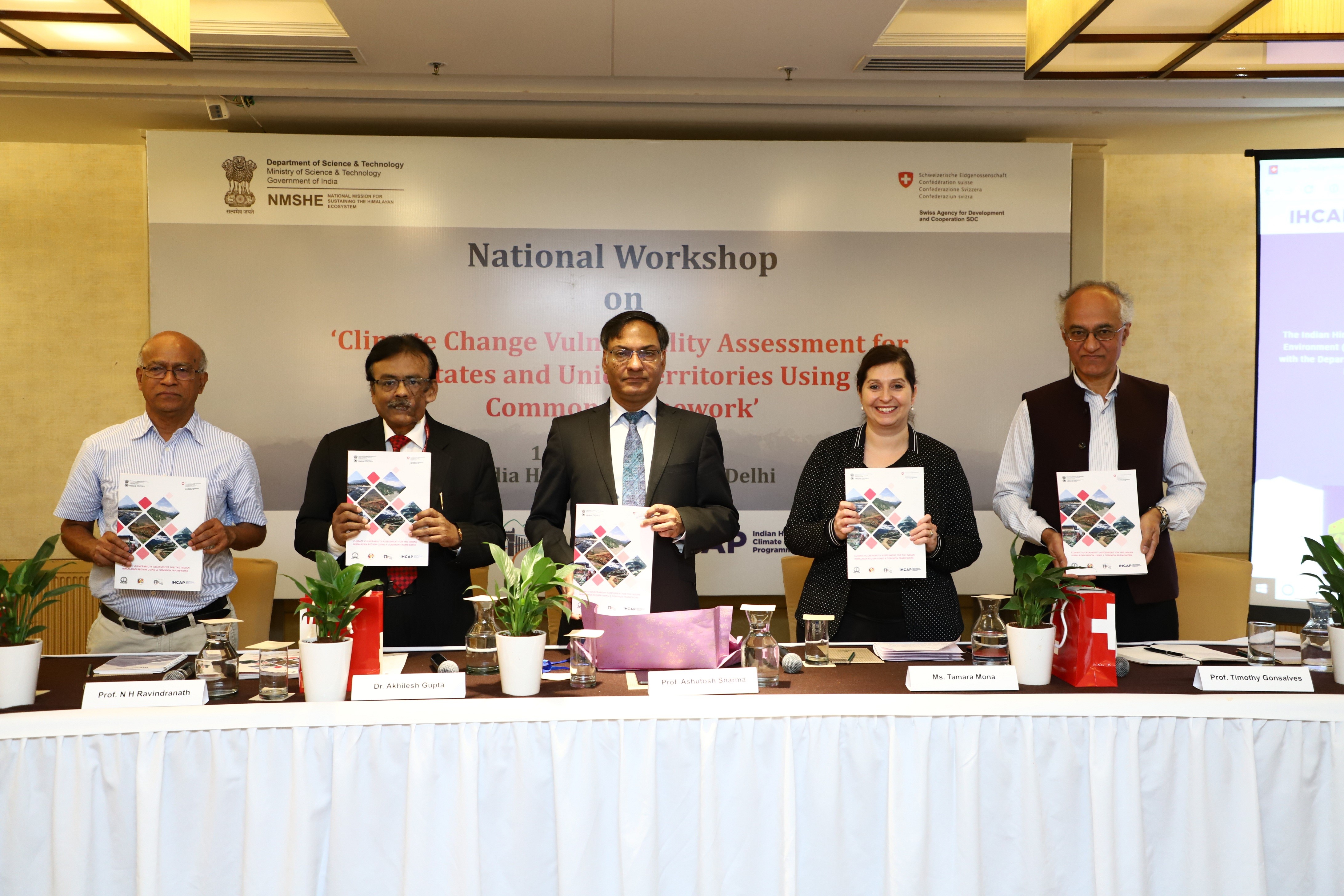
A Glimpse of India’s Scientific Prowess Buried for Posterity in Time Capsule
- News
- 1.7K
The 106th session India Science Congress underway here had a unique moment today when a time capsule containing 100 items representing India’s scientific prowess and the range of technology available in the modern world was lowered down into the ground to preserve a glimpse of present-day India for future generations.

Two Nobel Laureates – Hungary-born Israeli biochemist Avram Hershko and British-born American physicist F.Duncan M. Haldane – lowered the time capsule ten feet into the ground at a ceremony today afternoon.
The key objects in the capsule are replicas of India’s Mars orbiter Mangalyaan, Brahmos missile of Defence Research and Development Organisation, two-stage medium-range ramjet supersonic cruise missile and Tejas fighter jet.
The other articles include a laptop, a smartphone, a drone, Amazon Alexa and virtual reality glasses, a solar panel, and a hard disk with latest documentaries and movies and science textbooks of 12th standard.
The capsule, among other things, contains a collection of ordinary consumer durables like an air filter, an induction cooktop, and air fryer that are part of the present-day day to day life.
The capsule was put together by students of Lovely Professional University, where the Indian Science Congress session is being held. The artifacts were selected on the basis a poll among students.
Chancellor of the University, Ashok Mittal, said the plan was to keep the capsule underground up to January 3, 2119. “Earlier major developments would take place once in few decades. But, today new technical capabilities are being added to our lives every few years.
The time capsule offers a representation of technical know-how as it stands today. It should turn out to be a source of wonder and pride for the generation that would bring it up a century later”, he noted. (India Science Wire)
By Sunderarajan Padmanabhan
If you liked this article, then please subscribe to our YouTube Channel for the latest Science & Tech news. You can also find us on Twitter & Facebook.


